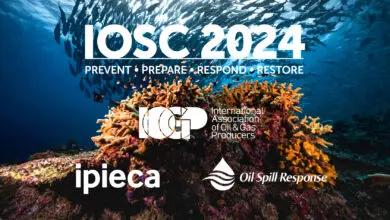
Thermoplastic composite pipes are a relatively new technology with the potential to be an attractive choice for offshore applications. However, to ensure their safe and reliable operation in offshore fields, there are potential technology gaps that need to be identified and addressed, and this is an area in which IOGP’s Thermoplastic Composite Pipes (TCP) Task Force has made recent progress. It hosted a forum of subject matter experts who identified failure mechanisms that may not be specifically covered in testing performed to the DNVGL-ST-F119 standard and issued recommendations to address those gaps.

Chair of the TCP Task Force, Jonathan Bowman (Chevron) said, “Going forward, this should minimize the level of duplication in qualification testing, and as a result, improve the schedule for deployments. Through engagements with DNV and the Task Force, DNV are able to consider the learnings from the operator community as a single voice in the upcoming revision to F119.”
DNV has indicated that throughout 2022, it will perform a general revision to ST-F119, and will take IOGP’s TCP Task Force recommendations into consideration for inclusion in the next revision to the standard.
At the forum, IOGP operators shared their knowledge and experience of using thermoplastic composite pipes in development and operations and recorded their common applications to define relevant failure modes and mechanisms. This work reflects industry-consensus to standardize practices and to minimize operator-specific qualifications.
The TCP Task Force was set up in April 2020, under the IOGP Subsea Committee. It thanks all the IOGP Members who were involved in the TCP Task Force and contributed to this work.



